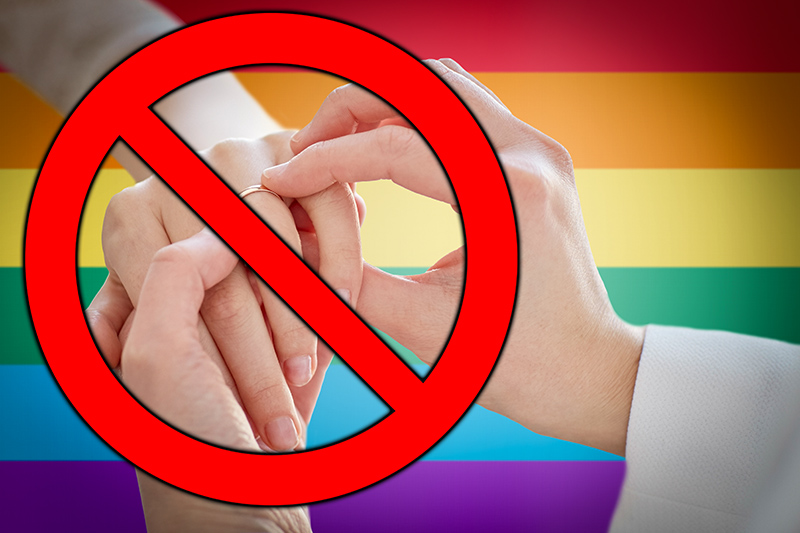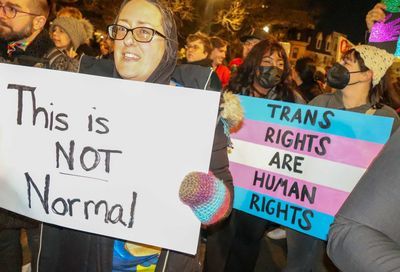Over 100,000 Israelis protest after Netanyahu caves to right-wingers on LGBTQ rights
Israeli prime minister voted against provision to allow single men to become parents via surrogacy

More than 100,000 Israelis took to the streets of Tel Aviv on Sunday night to protest Prime Minister Benjamin Netanyahu’s backtracking on a provision within a surrogacy bill that would have extended rights to same-sex couples, reports the Times of Israel.
Netanyahu, who has often touted Israel’s LGBTQ friendliness in an effort to distinguish its record on human rights from its Muslim neighbors, previously appeared in a video explaining why he supported the surrogacy bill, including the extension of rights to single men — which effectively allows gay couples to have children via surrogacy. (Gay marriages are not legally recognized in Israel.)
But even though Netanyahu had previously announced his support, and the bill was proposed by openly gay Knesset member Amir Ohana, a member of Netanyahu’s own Likud party, the prime minister caved to the demands of ultra-Orthodox parties, which demanded that a provision extending rights to single men be defeated. Netanyahu raced back to the Knesset to cast a vote to narrowly defeat that provision, even as the rest of the surrogacy bill was approved.
According to the Times, by voting against the extension of surrogacy rights to gay couples, the ultra-Orthodox parties reportedly agreed to support a controversial nation-state bill that establishes Israel as a the historic home of the Jewish people, with a “united” Jerusalem as its capital.
Following the vote, LGBTQ advocates and allies, led by LGBTQ umbrella organization Agudah, observed a one-day strike on Sunday morning, with demonstrations held in cities throughout Israel, with hundreds of people waving rainbow flags, blocking traffic, and shouting “shame.” The largest demonstration was in Tel Aviv’s Rabin Square.
Shahar Abramovitz, a gay man whose own children were born through surrogacy, said the fight was personal for him.
“Our twins are now three-and-a-half, and we want to help others not to have to pay half a million shekels and to travel just to have children. There should be equality for all,” he said. “We know there is a time to run, and a time to stand and fight. And now is the time to fight.”
LGBTQ activist Orna Banai addressed the crowd of nearly 100,000 in Rabin Square, accusing the government of hypocrisy for pretending to be LGBTQ-friendly.
“Too many times we’ve heard that we have we actually have it really good here, and there’s no discrimination. Because they’re not stoning us, they want us to sit down and be quiet,” she said. “But are you willing to sit down and be quiet?”
The crowd responded with a large, enthusiastic “No!”
Another protester named Eti told the Times that she came to the protest even though she is not a member of the LGBTQ community herself. “It’s just not right that some people can’t have kids,” she said.
Eti predicted that the backlash against the Knesset’s actions would eventually force Netanyahu to extend rights to same-sex couples.
Netanyahu has since denied that he changed his mind on the issue of surrogacy, arguing that he had to vote against the provision for same-sex couples to ensure the overall bill would pass. He promised to support a separate bill legalizing surrogacy for gay couples at a later Knesset session.
The protests generated widespread support from Israeli companies, which allowed their employees to attend the various demonstrations without penalty. Among the companies that supported the strike included major media and TV networks, high-tech companies such as Apple, Inc., retail and grocery chains, banks, and more.
Some companies even promised to contribute up to around $15,000 to help gay couples who must go abroad to enlist surrogates in order to have families.
Julian Bahloul, a spokesman for the Association of Gay Fathers in Israel, estimates that gay couples who are forced to find a surrogate abroad can spend as much as $100,000, whereas the cost would be less than half that amount if gay couples were allowed to engage in surrogacy in Israel.
Support Metro Weekly’s Journalism
These are challenging times for news organizations. And yet it’s crucial we stay active and provide vital resources and information to both our local readers and the world. So won’t you please take a moment and consider supporting Metro Weekly with a membership? For as little as $5 a month, you can help ensure Metro Weekly magazine and MetroWeekly.com remain free, viable resources as we provide the best, most diverse, culturally-resonant LGBTQ coverage in both the D.C. region and around the world. Memberships come with exclusive perks and discounts, your own personal digital delivery of each week’s magazine (and an archive), access to our Member's Lounge when it launches this fall, and exclusive members-only items like Metro Weekly Membership Mugs and Tote Bags! Check out all our membership levels here and please join us today!

























You must be logged in to post a comment.